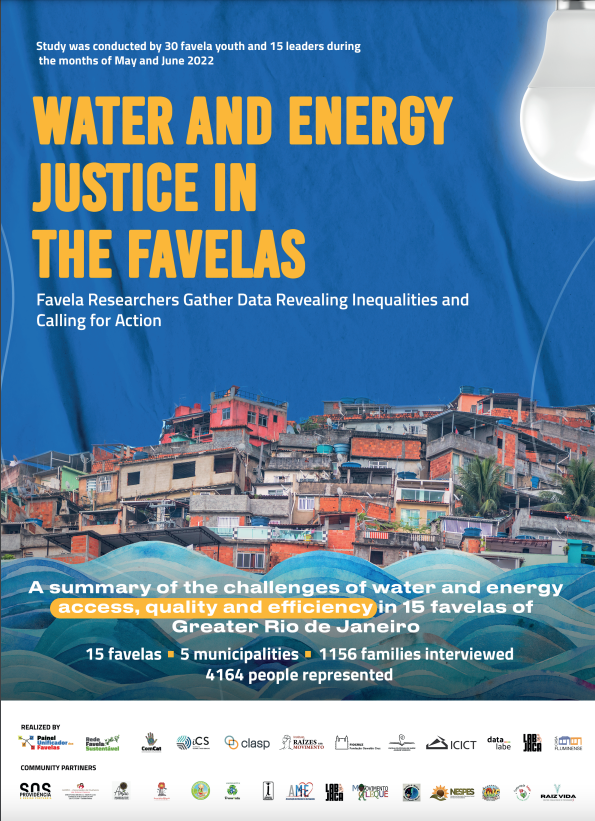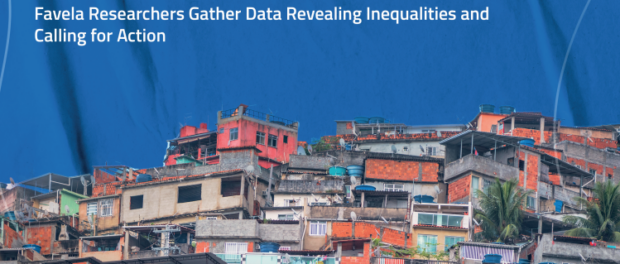ENGLISH LAUNCH: Energy and Water Justice in the Favelas Report
April 7, 2023—The report “Water and Energy Justice in the Favelas: Favela Researchers Gather Data Revealing Inequalities and Calling for Action” with unprecedented data on access, quality and efficiency of water and electricity, collected in 15 Greater Rio de Janeiro favelas, is now available in English.
 The data, covering 1156 families (representing 4164 people), were collected in 15 favelas by community leaders and youth. Don’t miss our data highlights below.
The data, covering 1156 families (representing 4164 people), were collected in 15 favelas by community leaders and youth. Don’t miss our data highlights below.
The press conference, held in 2022, brought together 96 people, including journalists, public authorities and civil society. During the event, the youth researchers themselves presented key data gathered in the 5 municipalities that participated in the course, and took questions from the audience describing their experience in the course and field research. They also presented the policy proposals that resulted from the data collection process, present at the end of the report.
Relevant links:
- Full report for download [English]
- Article about research course and report featured by CLASP
- Portuguese report for download
- English press release 2022
- Portuguese press release 2022
- 2022 Report Launch Press Conference on YouTube in Portuguese
- Photos of the research course
- Social Video datateaser
The research course, “Researching and Monitoring Water and Energy Justice in the Favelas” was realized over six months by the Sustainable Favela Network (SFN) and the Favelas Unified Dashboard (PUF), alongside eight institutional partners. Catalytic Communities (CatComm) is responsible for managing both the SFN and PUF.
HIGHLIGHTS FROM THE DATA
Water
– 16.9% go without water at least twice a week
– 26% remain without water for over 24 hours when the tap dries up
– 42.5% were without the water necessary for basic hygiene at some time during the pandemic
– 31.34% drink water from the tap without filtering
– 48.2% need a pump to have access to water at home
– 25.4% affirm that tap water comes out with a bad taste and 30% with color (indices of nonpotable water)
– 80% of those interviewed always fix water leaks in the home
– 75% always turn the tap off while brushing their teeth
Flooding/Sanitation
– 74.5% say it’s common to see pipes leaking in the streets of the community
– 51.5% of families say they are affected by flooding when it rains
– 80.1% affirm that floods have gotten worse in recent years
Electricity
– 32.1% have lost an appliance due to a short circuit in the electrical network
– 31.3% suffer from energy poverty (spend over 10% of their family income on electricity)
– 69% would choose to buy more food if their electric bill were reduced
– Over 50% resolve electrical problems within the community itself (30.2% through local electricians, 21.1% themselves, 5% through residents’ associations) while only 38.2% reach out to the utility.
– 66.1% use LED light bulbs
– 78% always turn the lights off when leaving the room
For clarification, press inquiries, etc., email press@catcomm.org

